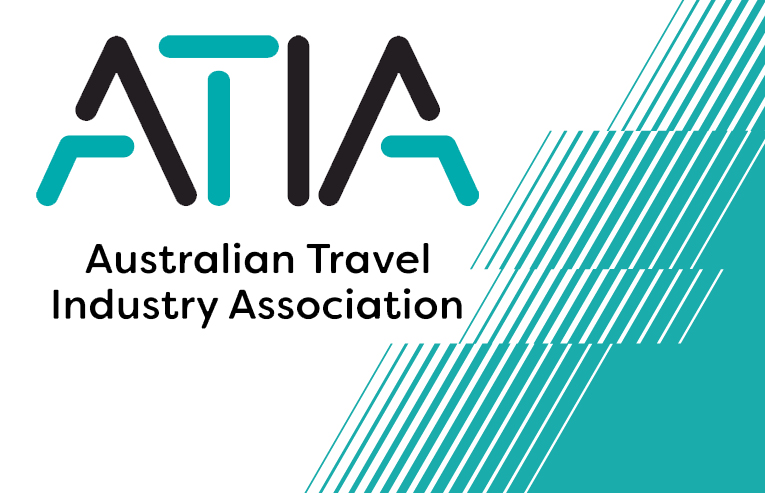THE relaunch of AFTA as the Australian Travel Industry Association (ATIA) is the culmination of a plan hatched by the organisation’s CEO, Dean Long, in the early days of his ascendancy to the role. Long, who took on leadership of the then Australian Federation of Travel Agents in late 2021, and at the time “committed to ensuring AFTA built upon what we achieved during COVID, but also learning what we needed to improve”.
That lofty aspiration resulted in two major reviews – of the AFTA Constitution and the Australian Travel Accreditation Scheme (ATAS) both of which have undergone significant changes as a result. And the key constitutional reforms, approved at the AFTA Annual General Meeting just two months ago, have in turn paved the way for the major changes announced this week.

The biggest change is to the name, with travel agents no longer formally recognised in the Association’s title. Long’s extensive lobbying experience and interactions with Governments of all stripes has convinced him – and the ATIA Board – that bigger is definitely better. While AFTA was a key player in promoting the travel industry’s interests during the pandemic, the inclusion of “Travel Agents” in its very name must surely have limited its ability to advocate on behalf of the entire sector, although that’s effectively what it did. All of that changes with ATIA, which will now much more clearly evoke the Association’s status as a peak body.
ATIA has been created to accurately reflect the existing membership of travel agents, corporate agents, tour operators, wholesalers and inbound tour operators, according to Chairman Tom Manwaring from Express Travel Group. “In reviewing where we were, it became fundamentally apparent that our name no longer was fit for purpose. Of our 1,200 members, which include travel agents, corporate agents and OTAs, we also have 200 tour operators, wholesalers and ITOs. Of our 1,000 travel agency members, only 14 were currently marketing or promoting their businesses as travel agents or agencies,” he said.
“The world of travel has transformed since AFTA was created in 1957, and to better reflect who we are and what we do, we have created ATIA.”
Manwaring said the ability to speak under the ATIA banner would help ensure that travellers and Governments “recognise the full reality of Australia’s vibrant travel ecosystem” – a sentiment backed by ATIA CEO Long, who said “making sure there’s a really powerful voice that represents international and domestic travel by Australians and the people that make that happen across travel agents, tour operators, wholesalers and consolidators is really important”.
During a presentation outlining the changes, Long and Manwaring highlighted several key policy priorities as part of the “one voice to Government” strategy, focusing on fair competition and effective market settings, that travel should be a desired industry for people to work in, and fundamentally “ensuring that people making decisions about our industry, understand our industry”.
Giving a voice to the industry
While the new name and branding for ATIA is a signal to regulators and the community reflecting the diverse segments of the travel ecosystem, the move is much more than just a cosmetic change. The extensive consultation period has provided significant feedback from the Association’s members and other industry stakeholders, and the ATIA team are keen to show they are listening.
Reforms announced so far include the new constitution (adopted at the June Annual General Meeting), with a completely revamped modernised voting structure based on TTV of Australian Travel Accreditation Scheme (ATAS) participants, rather than physical bricks and mortar locations. ATAS continues to be a key pillar of the organisation, and ATIA this week confirmed the establishment of an independent ATAS Advisory Committee – including representatives of the entire ATIA membership base – to provide independent governance of the industry-led scheme.
On top of that, new forums (designated as “caucuses”) are being developed, to provide a better way for members to have input to the Association. “Members are at the heart of ATIA and, as part of the two-year review process, three specific membership segments expressed their wish to have dedicated engagement platforms to network and also provide advice on advocacy activities,” according to a launch statement from the organisation.
The initial three caucuses – covering Independent Travel Agents, Independent Contractors (Homebased) and Tour Operators/Wholesalers – will provide for formal consultation processes, in addition to existing channels, and members of each caucus will be able to “collaborate, network and define advocacy objectives” within their specific areas. The flexible structure may evolve, with Long suggesting other groups may also arise with special interests and issues, such as corporate travel, online technology or even cruise.
“The caucuses are really going to help us enhance our advocacy in the long term,” the ATIA CEO said. “Being able to have formal or informal gatherings of different membership groups and business owners will allow us to enhance the policy positions that we will take, because we’ll be even more connected to what the members are wanting and needing. And conversely they’ll be far more up to date with what we’re doing in those spaces as well, which I think is going to be really exciting for everybody”.
Individuals can now become ATIA members
Another major innovation is the launch of a new ATIA Individual Membership option. Costing $10+GST per month, this will allow people working anywhere in travel to align themselves with the industry peak body while at the same time benefiting from ongoing training, events and networking opportunities.
Richard Taylor, ATIA’s Director of Membership and Industry Affairs, is overseeing this key initiative which includes a new online “Travel Exchange” which evokes his own Travel Community Hub by promising “a neutral, well-moderated and helpful community forum that fosters connections and knowledge-sharing”.
“Our industry is fragmented, and we need a common connection point as individuals,” Taylor said.
Individual Members will also gain access to events (both online and in-person) to discuss key industry topics and learn, in areas such as NDC, dealing with complaints, sustainability and careers in travel.
Taylor and Long envisage Individual Membership of ATIA as providing a place for everyone – travel agents and advisors, reservations consultants, destination representatives, business development managers, product designers, marketers, PR specialists and many more, at all ages and stages of their careers. “Membership is your connection to your industry” is the key tagline for the individual membership proposition.
“It’s open to everybody within the travel sector,” Long told travelBulletin. “It’s about creating industry culture beyond your employer…you can be on maternity leave, you can be at the beginning or end of your career, or a role adjacent to the industry, but you’re still joined into the sector. We think that’s going to be a really powerful way to create a home. When we started looking at things we saw people were parts of all sorts of different groups, whether it’s the Road Warriors monthly catch-up, or various Facebook groups or other associations or bodies. What we’re wanting to do is bring people in, we need to create a natural home for our industry family,” he said.
On top of the benefits for individual members, expanding the ranks also helps reinforce ATIA’s lobbying efforts on behalf of the industry, because in the end politicians care about people (and their votes) so the more muscle the Association can demonstrate in terms of numbers and their national footprint the better.
ATAS remains key
Amid the wide-ranging changes, the commitment to the industry-led Australian Travel Accreditation Scheme (ATAS) remains central to the organisation. “We are absolutely committed to ATAS, it will continue to be the accreditation model that the Association supports and continues to promote, and we’ll continue to enhance the systems and processes that we’ve spent more than $20 million in building and maintaining over the last decade,” Long said. ATAS accredited businesses will continue to have the voting power in terms of ATIA’s governance, in line with the recent constitutional changes.
In the end, consumers and the Government need to recognise that “when you choose an ATAS travel business, you are choosing the highest quality of service and professionalism,” he added. The rebranding to ATIA has also included a significant makeover of the ATAS website, with a range of exciting consumer-facing enhancements still to come.

We are family…
The massive changes to AFTA really can’t be understated, with the organisation’s proud travel agent heritage evolving to reflect the new 2020s reality of the diverse industry travel production, supply and distribution system. Long freely admits that it’s not aiming to be a one-size-fits-all proposition, but instead is flexible enough to embrace the full spectrum of participants in the sector.
“The new name is the key to effectively a ‘one future’ position, where we can all come together with one voice and create a family,” he said. “And just like any family, it means that we’ve got to acknowledge our differences, but we still are stronger together.”







